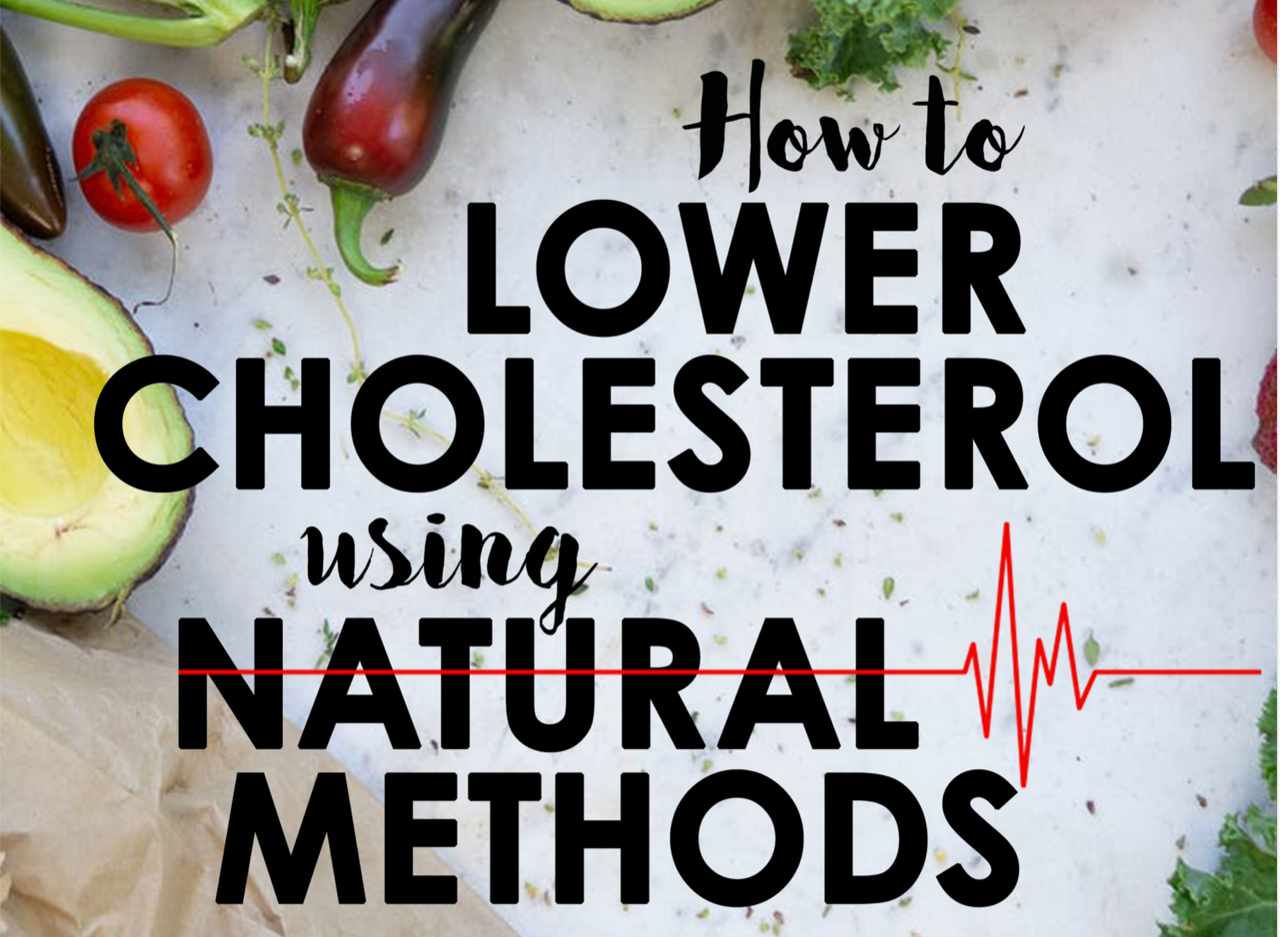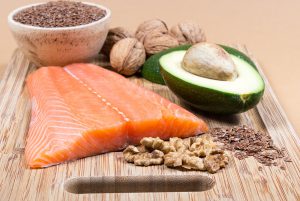Do you want to know more about natural remedies for lowering cholesterol? If so, you're in luck! In this blog post, we'll provide you with an ultimate guide to lowering cholesterol including the best foods, supplements, essential oils, and lifestyle recommendations to reducing your risk of heart disease.
What is High Cholesterol?
Knowing your numbers can help you better understand your overall cholesterol, including LDL, HDL, and Triglyceride numbers so you can make better choices.
If your cholesterol levels are less than 200 milligrams per deciliter it may satisfy your doctor. But actually, they should probably be less than 100 mg/dL.
Your cholesterol is borderline high if the reading is between 200 and 239 mg/dL.
When your reading is 240 mg/dL or higher, that's high and your doc will want to give you medication to control it or you can try using these natural remedies for lowering high blood cholesterol.
Why Your Body Needs Cholesterol
Good cholesterol, or HDL cholesterol, is a type of lipid transported through the bloodstream. It helps your body make cell membranes, creates hormones like estrogen and progesterone, and synthesizes vitamin D. HDL cholesterol also helps to remove bad cholesterol from the arteries and veins, which can reduce your risk of heart disease.
Read along to learn all about how to lower cholesterol naturally! We’ll explore what causes high cholesterol, the top foods to lower cholesterol naturally, what foods to avoid. I'll also share what supplements and herbs to lower your cholesterol and essential oils that can play a big role in lowering your cholesterol levels as well as what lifestyle changes to make.
What is Cholesterol?
Cholesterol is a waxy substance found in your blood and it is not bad. In fact, it has many functions. It's only bad when it is unbalanced.
Two Types of Cholesterol
Our bodies generate two types of cholesterol – LDL and HDL.
Too much cholesterol in your bloodstream can be unhealthy. That's why most people avoid high cholesterol numbers, but having high HDL cholesterol is important.
LDL Cholesterol
Low-density lipoprotein makes up most of the body's cholesterol. This waxy, fat-like substance is important, but an excess can build up in the blood and cause heart disease and stroke. LDL is often thought of as bad cholesterol.
HDL Cholesterol
High-density lipoprotein is responsible for carrying LDL cholesterol to the liver to be processed and flushed from the body. High levels of HDL cholesterol are helpful and can help reduce the risks caused by high levels of LDL cholesterol. HDL cholesterol is often thought of as good cholesterol.
Note: LDL, HDL, and triglycerides, fat created by calories your body doesn't use as fuel, make up your total cholesterol.
Lowering LDL and Increasing HDL is Key
High levels of LDL (bad cholesterol) in your bloodstream can lead to significant health issues, including death. The waxy buildup of fats in your bloodstream can create plaque and narrow the blood vessels.
Here's how it happens. First, fatty deposits develop in your blood vessels. Eventually, the deposits build up so that not enough blood can flow through your arteries. The deposits can break off and form a clot. And that’s when you hear about people having heart attacks and strokes.
Are there complications of high cholesterol?
Yes, let’s look at them:
Development of atherosclerosis – When your cholesterol is high, there is a dangerous accumulation of cholesterol on the walls of your arteries. This disease is called atherosclerosis.
When the plaque builds up, further complications can arise:
- Chest pain occurs when arteries that supply your heart with blood become clogged.
- Heart attack. If the plaque buildup tears or ruptures, a blood clot could form at the place where the plaque has built up, blocking blood flow. Some of it could then break off – if this happens, it can plug an artery further. Any blockage of blood to your heart brings on a heart attack.
- Stroke. Just like blood not getting to the heart, if blood flow can’t get to your brain, you can have a stroke.
Fortunately, there are a lot of wonderful Natural Remedies for Lowering cholesterol that you can start using today.
Some of them even promise quick results. Just improving your diet and adding in exercise can do wonders for your cholesterol levels.
What Causes High Cholesterol?
Crappy diet
Foods that are high in cholesterol – like red meat and dairy products can also increase your cholesterol. Trans-fats found in commercially baked goods can raise your cholesterol level too.
If you need a cookbook that not only helps lower cholesterol but provides quick, delicious recipes, I highly recommend this book:
Obesity
When your body mass index (BMI) is 30 or greater, you are at risk of high cholesterol. More on weight loss here.
Lack of exercise
Exercise goes a long way in helping to boost your body's HDL levels, or the “good,” cholesterol. Start with at least 30 minutes of exercise at least 30 minutes a week. How much you exercise may be more important than what kind of exercise you do.
Smoking
Smoking cigarettes damages the walls of your blood vessels and lowers your levels of HDL. This makes you more likely to accumulate fatty deposits.
Age
When you age, your liver also ages, making it less able to remove the LDL or “bad” cholesterol from your blood. As you age, your body’s chemistry changes and your risk of high cholesterol climbs.
Diabetes
High blood sugar also contributes to higher levels of dangerous cholesterol known as VLDL. (Very-low-density lipoprotein). This also lowers good cholesterol. If you have high blood sugar, the lining of your arteries stands a good chance of getting damaged.
What Foods Raise Good Cholesterol?
You need to limit your consumption of bad cholesterol, but it's also vital to increase your intake of foods that elevate HDL cholesterol.
Raise good cholesterol by choosing:
- Reduced-fat dairy products
- Limiting red meat
- Choosing lean meats
- Adding antioxidant foods
- Taking in healthier fats
Are Bananas Good for Cholesterol?
Bananas are a great source of dietary fiber, with around 3 grams per large banana. But that's not all they offer; bananas are also a good source of potassium, which is another nutrient that can help to lower cholesterol levels. Potassium helps to remove excess sodium from the body, which can lead to higher blood pressure and increased risk of heart disease. So if you're looking for a delicious way to help lower your cholesterol, it's safe to reach for a banana.
Here are some tips that can radically boost HDL every time you eat.
4 General Tips to Boost Good Cholesterol
1. Choose Healthier Fats
Your body needs fat. We live in a world that promotes fat-free versions of everything, but our bodies need fat to survive.
Have a variety of healthy fats on hand. There are plenty of ways to add variety to cooking, snacking, and meals, from nuts to seeds in the whole form to oils.
Cutting down on foods high in saturated fats and replacing them with unsaturated plant-based oils can help improve cholesterol levels. For example, peanut butter as well as other nut butters may be good options for you!
Some healthy fat ideas include:
- Walnuts
- Almonds
- Flaxseeds
- Chia seeds
- Olive Oil
- Avocado Oil
Nuts, seeds, and oils are excellent sources of healthy fats but don't forget foods like fatty fish too. Canned salmon, tuna, sardines, and mackerel are excellent sources of HDL-boosting fats.
Add poly or monosaturated avocado, coconut, or sesame seed oil to your diet rather than partially hydrogenated oils like vegetables, canola, or soybean oil.
2. Choose Fiber-Rich Foods
Fiber boosts HDL cholesterol. Soluble fiber reduces LDL cholesterol which helps raise the percentage of HDL cholesterol in relation to LDL.
Fiber-rich foods can include whole grains, beans, and many fruits and vegetables. Add these foods to your pantry and fridge for HDL health.
- Oats
- Brown and wild rice
- Bran and other cereals
- Whole-grain bread
- Beans and legumes
- High-fiber fruits like apples, prunes, and pears
3. Eat Antioxidant Foods
Antioxidants help prevent the changes that turn cholesterol in the blood into plaques that can cause blockages in blood flow.
Eating anti-oxidant foods is excellent for more than reducing cholesterol. Antioxidants can help reduce the chances of cancer and other life-threatening illnesses.
Some excellent antioxidant foods are:
- Dark chocolate (the darker, the better)
- Dried or fresh berries
- Artichokes
- Kale
- Red Cabbage
4. Choose Better Dairy
Full-fat dairy is amazing and has its place in our diet. With moderation, butter, cream, and other dairy foods are a delightful addition to a meal.
If you love dairy foods and consume them regularly, choosing lower-fat versions can make a big impact on your cholesterol.
Another way to impact cholesterol is by choosing dairy-free products. Foods like plant-based milk are cholesterol-free and can be used as a milk replacement in cooking and consumption.
Is Cottage Cheese Healthy for Dietary Cholesterol?
Cottage cheese can be a healthy choice for managing cholesterol levels. It is relatively low in fat, especially in its low-fat or non-fat varieties, and contains essential nutrients like protein and calcium. The protein in cottage cheese can help in maintaining muscle mass and supporting metabolism.
What Foods Raise Good Cholesterol?
You need to limit your consumption of bad cholesterol, but it's also vital to increase your intake of foods that elevate HDL cholesterol.
Raise good cholesterol by choosing:
- Reduced-fat dairy products
- Limiting red meat
- Choosing lean meats
- Adding antioxidant foods
- Taking in healthier fats
Are Bananas Good for Cholesterol?
Bananas are a great source of dietary fiber, with around 3 grams per large banana. But that's not all they offer; bananas are also a good source of potassium, which is another nutrient that can help to lower cholesterol levels. Potassium helps to remove excess sodium from the body, which can lead to higher blood pressure and increased risk of heart disease. So if you're looking for a delicious way to help lower your cholesterol, it's safe to reach for a banana.
Here are some tips that can radically boost HDL every time you eat.
4 General Tips to Boost Good Cholesterol
1. Choose Healthier Fats
Your body needs fat. We live in a world that promotes fat-free versions of everything, but our bodies need fat to survive.
Have a variety of healthy fats on hand. There are plenty of ways to add variety to cooking, snacking, and meals, from nuts to seeds in the whole form to oils.
Cutting down on foods high in saturated fats and replacing them with unsaturated plant-based oils can help improve cholesterol levels. For example, peanut butter as well as other nut butters may be good options for you!
Some healthy fat ideas include:
- Walnuts
- Almonds
- Flaxseeds
- Chia seeds
- Olive Oil
- Avocado Oil
Nuts, seeds, and oils are excellent sources of healthy fats but don't forget foods like fatty fish too. Canned salmon, tuna, sardines, and mackerel are excellent sources of HDL-boosting fats.
Add poly or monosaturated avocado, coconut, or sesame seed oil to your diet rather than partially hydrogenated oils like vegetables, canola, or soybean oil.
2. Choose Fiber-Rich Foods
Fiber boosts HDL cholesterol. Soluble fiber reduces LDL cholesterol which helps raise the percentage of HDL cholesterol in relation to LDL.
Fiber-rich foods can include whole grains, beans, and many fruits and vegetables. Add these foods to your pantry and fridge for HDL health.
- Oats
- Brown and wild rice
- Bran and other cereals
- Whole-grain bread
- Beans and legumes
- High-fiber fruits like apples, prunes, and pears
3. Eat Antioxidant Foods
Antioxidants help prevent the changes that turn cholesterol in the blood into plaques that can cause blockages in blood flow.
Eating anti-oxidant foods is excellent for more than reducing cholesterol. Antioxidants can help reduce the chances of cancer and other life-threatening illnesses.
Some excellent antioxidant foods are:
- Dark chocolate (the darker, the better)
- Dried or fresh berries
- Artichokes
- Kale
- Red Cabbage
4. Choose Better Dairy
Full-fat dairy is amazing and has its place in our diet. With moderation, butter, cream, and other dairy foods are a delightful addition to a meal.
If you love dairy foods and consume them regularly, choosing lower-fat versions can make a big impact on your cholesterol.
Another way to impact cholesterol is by choosing dairy-free products. Foods like plant-based milk are cholesterol-free and can be used as a milk replacement in cooking and consumption.
Is Cottage Cheese Healthy for Cholesterol?
Cottage cheese can be a healthy choice for managing cholesterol levels. It is relatively low in fat, especially in its low-fat or non-fat varieties, and contains essential nutrients like protein and calcium. The protein in cottage cheese can help in maintaining muscle mass and supporting metabolism.
Top Foods to Lower Cholesterol Naturally
Olive oil
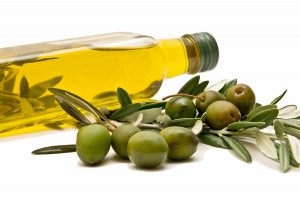
Olive oil is laden with heart-healthy unsaturated fats. Use extra-virgin olive known to lower bad LDL cholesterol levels and enhance heart health.
Vegetables
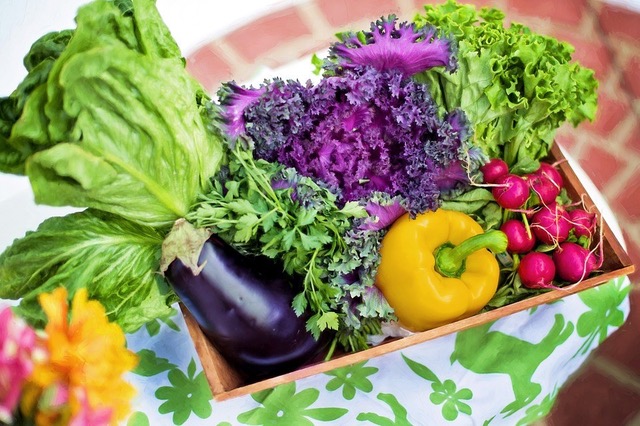
Vegetables are top nutrient-dense foods high in minerals, vitamins, and fiber. They support heart health and are low in calories. Studies show that when you eat more vegetables, you lower your LDL cholesterol levels.
Ayurveda suggests that we favor and focus on bitter and astringent vegetables.
Bitter vegetables include all leafy greens like spinach, kale, and mustard greens. Use spices like cumin, coriander, and fennel to aid digestion.
Astringent vegetables: broccoli, cabbage, cauliflower
Nuts and Seeds
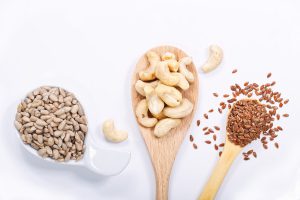
Rich in healthy fats and fiber, nuts are a superb dietary addition if you want to lower your cholesterol. Plenty of studies reveal how eating nuts can lower levels of LDL cholesterol.
Nuts also can decrease triglycerides, which are the most common type of fat found in your body.
Seeds are highly nutritious, particularly flaxseed which can reduce LDL cholesterol levels.
Salmon
We probably all know how valuable omega-3 fatty acids are for our health. Salmon is loaded with Omega 3 fatty acids. Fatty acids help a great deal in lowering cholesterol levels and inflammation to enhance heart health.
Turmeric
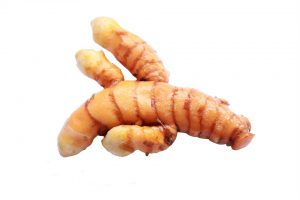
This golden spice has a powerful compound called curcumin. Curcumin is capable of reducing levels of LDL cholesterol.
Garlic
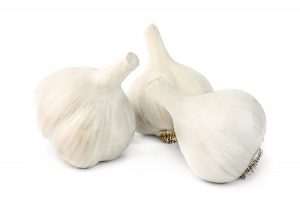
Most of us love garlic because it can add so much flavor to food and it has outstanding health benefits. Research shows that when you consume garlic for at least two months, you can lower your cholesterol levels to reduce the risk of heart disease.
Okra
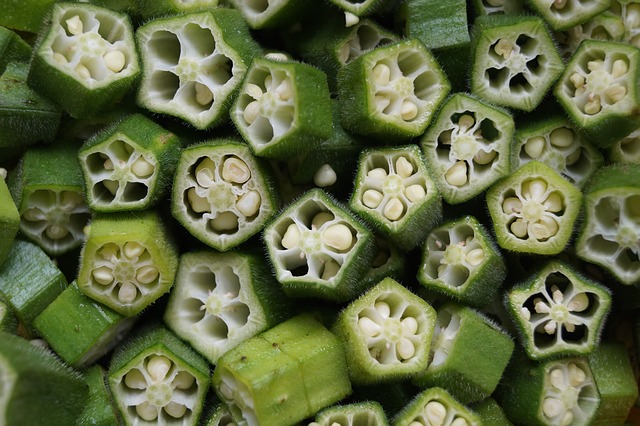
Okra contains a lot of fiber, potassium, and antioxidants, helping to promote better heart health.
Legumes and Beans
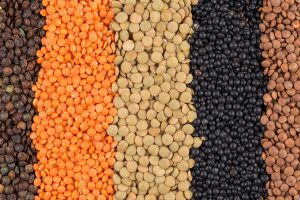
Legumes are beans, lentils, and peas.
When you add legumes into your diet, it benefits your health. There are studies that show that when you add legumes into your diet, you promote lower cholesterol levels in your blood.
Sweet potatoes
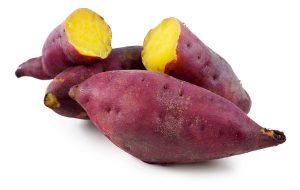
So many of us adore this tasty tuber. Sweet pots contain lots of health-promoting proteins and compounds to decrease cholesterol levels.
Green Tea
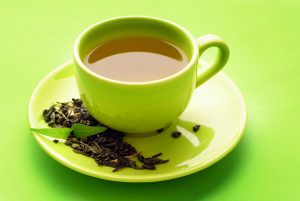
Green tea is rich in antioxidants as well as catechins. These are anti-oxidant flavonoids that fight disease. Green tea is one of the healthiest beverages. Studies show that it is capable of reducing LDL cholesterol levels.
Persimmon
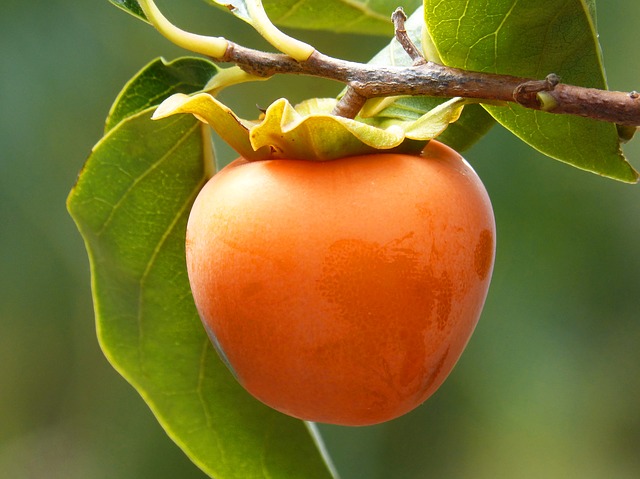
Persimmon is a delicious citrus fruit that has a major impact on heart health. It has plenty of fiber to lower cholesterol levels in adults.
Avocados
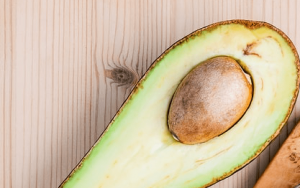
Avocados have plenty of fiber in them as well as potassium and healthy fats. These combinations keep your cholesterol levels under control. Avocados increase the good levels of cholesterol (HDL) in your body but reduce the bad levels (LDL) as well.
Gluten-Free Whole Grains
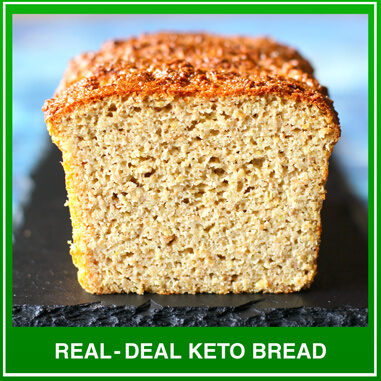
Whole grains lower levels of cholesterol and improve heart health. Avoid the whole-grain foods that have gluten in them because then you can become highly inflamed. Examples of gluten-free grains are quinoa, buckwheat, and brown rice. If you want to know how to eat a gluten-free diet, you can find an excellent guide here.
Avoid These Foods
-
Sugar and Refined Carbohydrates
Sugar and refined carbs can usually be found in ultra-processed foods. These unhealthy foods eat up the good cholesterol levels in the blood.
Reduce or avoid sweet grains like pasta, wheat, bread, sweet dairy products, salad dressings, ketchup.
-
Alcohol
Every now and then it’s fine to enjoy a glass of red wine. But when you drink more than you should, it has devastating effects on cholesterol levels. It is imperative to keep alcohol consumption in moderation – stick to one or two glasses a week to keep heart and cholesterol health good.
-
Caffeine
In the same way as alcohol, if you go overboard with caffeine, you do damage to your cholesterol levels.
Coffee, sodas, and many energy drinks all have plenty of caffeine which can increase cholesterol levels. It’s a good idea to limit tea and coffee down to a cup a day to keep your cholesterol levels in check.
-
Trans-fats
You will find plenty of trans-fats in pre-packaged and processed, fried foods.
Trans- fats increase your LDL cholesterol levels, and decrease the good HDL cholesterol. This means one thing – boosting your risk of coronary heart disease. Cut them out of your diet altogether if you want your cholesterol levels to improve.
Supplements and Herbs to Lower Your Cholesterol
1. Omega 3 fatty acids – Fish Oil (1,000-2,000 milligrams a day)
This is one supplement you don’t want to leave out of your diet, no matter how healthy or unhealthy you are. It is simply packed with heart- and cholesterol-health omega-3 fatty acids. It is highly effective at increasing levels of good HDL cholesterol in the blood and clearing out LDL cholesterol from the arteries.
2. CoQ10 (200-300 milligrams a day)
CoQ10 stands for Coenzyme Q10 – very useful in lowering cholesterol levels. How does it work? Just by removing excess cholesterol from your blood and preventing that dreaded condition, atherosclerosis, from forming – worth its weight in gold.
3. Niacin (1,500 milligrams a day)
Niacin is known as vitamin B3 and is commonly used for treating high cholesterol. It is worth taking niacin because it is also known to reduce triglycerides and lower bad cholesterol. At the same time, it increases beneficial HDL cholesterol levels.
4. Red yeast rice (1,200 milligrams twice a day)
Red yeast rice is derived from white rice but has undergone fermentation. One study shows that red yeast rice decreases triglycerides and also LDL cholesterol.
5. Garlic (500 milligrams a day)
Along with other fantastic health benefits, garlic is also known to lower cholesterol.
6. Triphala
Triphala is an Ayurvedic formulation specific for improving digestion, and reducing toxins and bad cholesterol in the body. It can also help to reduce high blood pressure, which benefits circulation.
7. Psyllium Husk
Psyllium cholesterol-lowering effects are due to soluble fiber that develops a gel-like consistency. It is thought that this soluble fiber lowers cholesterol by reducing its absorption from the small intestine and into the bloodstream.

Here's another quick natural remedy that an Ayurvedic doctor gave me a few years back to add to your cholesterol lowering diet plan.
2 Tablespoons of honey
3 teaspoons of cinnamon powder
Mix the honey and cinnamon powder in 475 ml green tea. Drink it down. It can reduce the level of cholesterol in the blood by 10% within 2 hours!
Essential Oils Can Play a Big Role in Lowering Cholesterol Levels
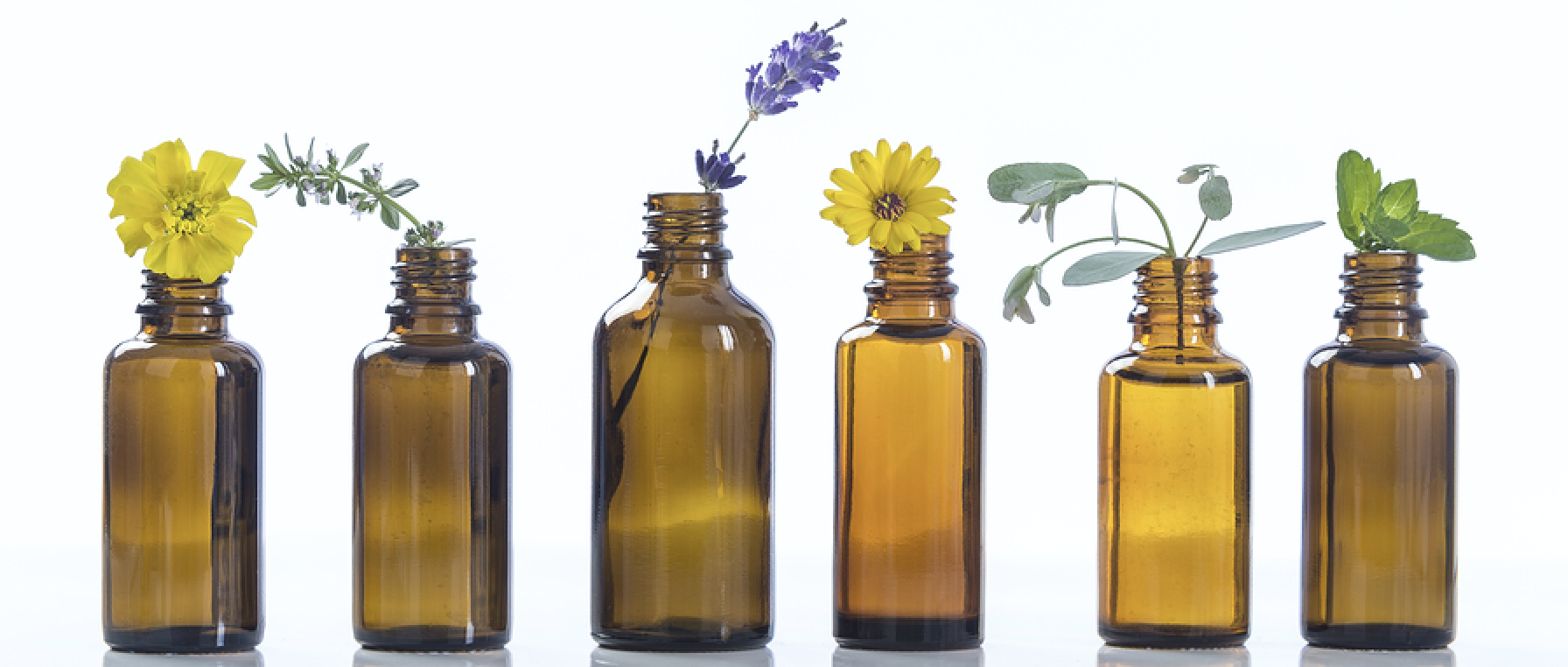
Lavender Oil
Known to decrease stress and cortisol levels, Lavender oil is particularly beneficial for heart health.
Cypress Oil
Similar to lavender oil, cypress essential oil reduces stress which boots heart health. Cypress is known to promote good blood circulation. It helps to lower cholesterol levels too.
Rosemary Oil
Rosemary has antioxidant properties. It also reduces blood lipid levels that help to stabilize blood sugar levels.
Lemon Grass Essential Oil
This oil promotes blood circulation and lowers cholesterol levels.
>>Read Our Simply Earth Review here
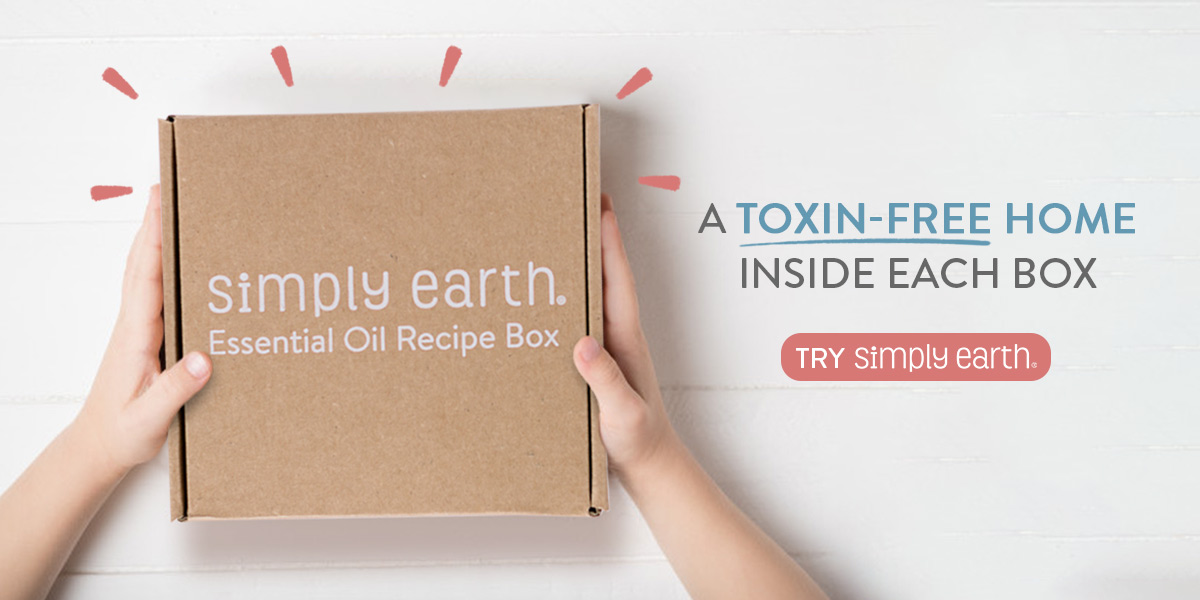
Ginger Essential Oil
Ginger contains antioxidant compounds to eliminate waster and reduce inflammation.
Oregano Essential Oil
Oregano helps to reduce cholesterol.
Cinnamon Essential Oil
Stabilizes blood sugar and reduces inflammation and fights infections.
Clove Essential Oil
An anti-inflammatory and pain-relieving oil, clover is used for preventing blood clot formation.
Exercise Plays a Huge Part to Help You Lower Your Cholesterol Naturally!

You probably have heard your doctors say when it comes to reducing cholesterol levels, that you should get more exercise.
There are two types of exercise that work on improving health. These are aerobic exercises and resistance training exercises.
Aerobic exercises or cardio workouts help to lower cholesterol levels. It also strengthens the heart and lungs too. Running, walking, cycling, and hiking will provide cardio benefits.
Resistance training is an exercise where you force your muscles to contract as you build up endurance and strength. Resistance exercise supports a decreased LDL cholesterol build-up.
Lifestyle Habits for Lowering Cholesterol
Even though we have given you many natural remedies for lowering cholesterol, you need to add healthy lifestyle habits too. We perpetuate ourselves through our lifestyle. A healthy lifestyle maximizes the effectiveness of your efforts.
Cholesterol-lowering effects of a healthy diet only work when you couple it with regular exercise, a good sleep schedule, and improving your digestion. Here is a full report on suggested lifestyle tips for health and vitality.
The Link Between Sleep and Cholesterol
Did you know that there is a link between sleep and your cholesterol? Usually, people automatically think of diet and exercise when they hear the words, “high cholesterol”. But researchers are also looking at the number of hours you sleep at night for answers about cholesterol.
Researchers have found that sleeping too much or too little can have negative impacts on your cholesterol levels.
Sleeping less than 5 hours a night was reported to raise the risk of high triglycerides in the blood. Those getting more than 9 hours of sleep produced the same effects. Individuals who sleep less than 6 hours increase their risk of developing cardiovascular disease as well.
Researchers also discovered that snoring is associated with lower levels of good HDL cholesterol. When researchers did a study on adults who did not get enough sleep, it led to an increase in high cholesterol food eating, also a decrease in physical activity, and elevated stress levels.
Learn to Let Go
Stress can affect cholesterol levels. It can make it harder to choose healthy foods, exercise, and elevate blood pressure. Reducing stress can help reduce LDL cholesterol and boost HDL.
Conclusion of Natural Remedies For Lowering Cholesterol
Managing healthy cholesterol is more than choosing fish over French fries. Your lifestyle will greatly impact your cholesterol and health.
You can easily boost your HDL naturally by choosing smart and healthy foods for every meal. What you add to your plate is just as important as what you take away. Choose HDL-friendly foods that help your body maintain healthy cholesterol levels every day.
So there you have it – natural remedies for lowering cholesterol. By making simple changes to your diet and lifestyle you can improve your heart health and reduce your risk of heart disease.
Thanks for reading!
Don't forget to follow us on Pinterest. Thank you for your time and reading.
The information presented here is in no way meant to serve as medical advice. It is merely information and opinion. All information, content, and material on this website are for informational purposes only and are not intended to serve as a substitute for the consultation, diagnosis, and/or medical treatment of a qualified physician or health care provider. If you are experiencing symptoms of any kind, please consult with your physician.
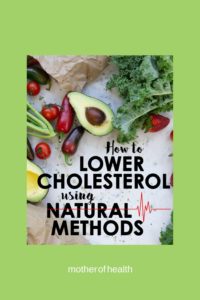

Related Posts:
How To Improve Blood Circulation Naturally
Discover the Surprising Benefits of Natural Remedies
10 Nutritious High-Protein Foods for Weight Loss
The Health Benefits of Ashwagandha
The Power of Green Gold: The Health Benefits of Eating Avocados
How to Make Oat Milk at Home the Easy, Fast Way + Health Benefits

